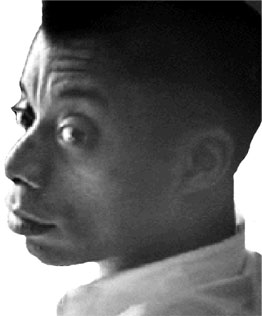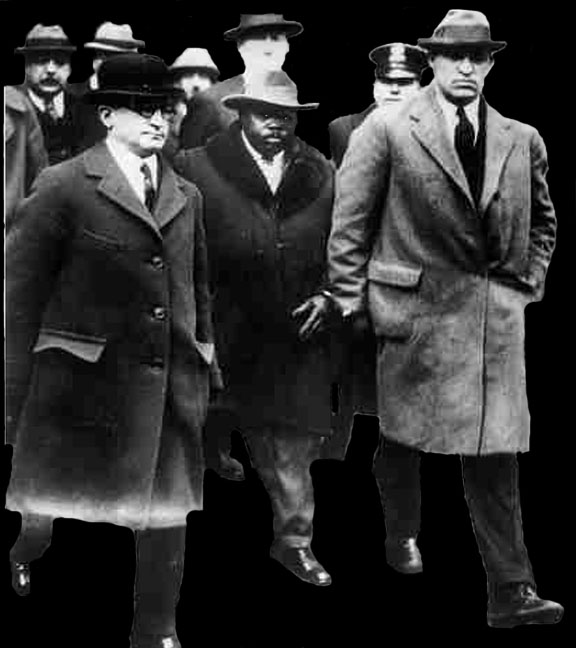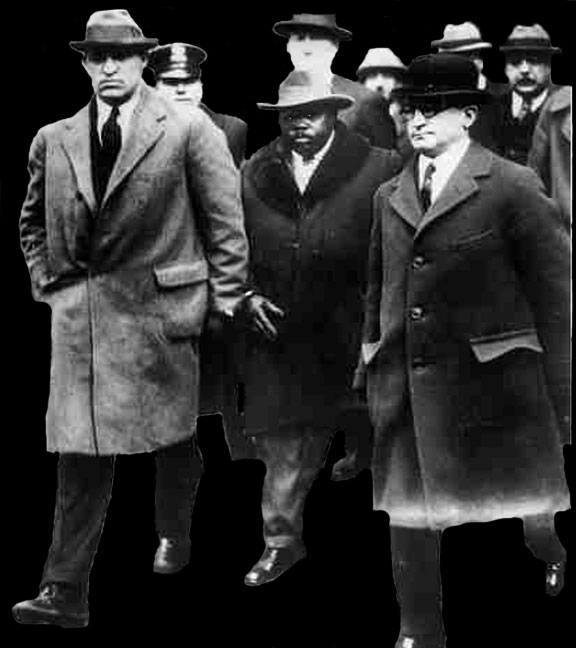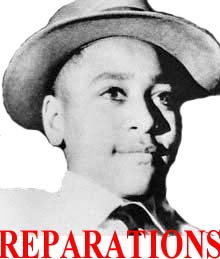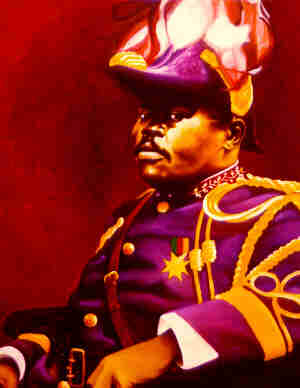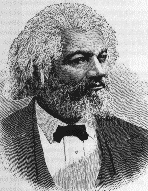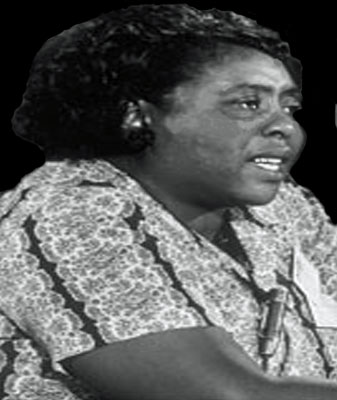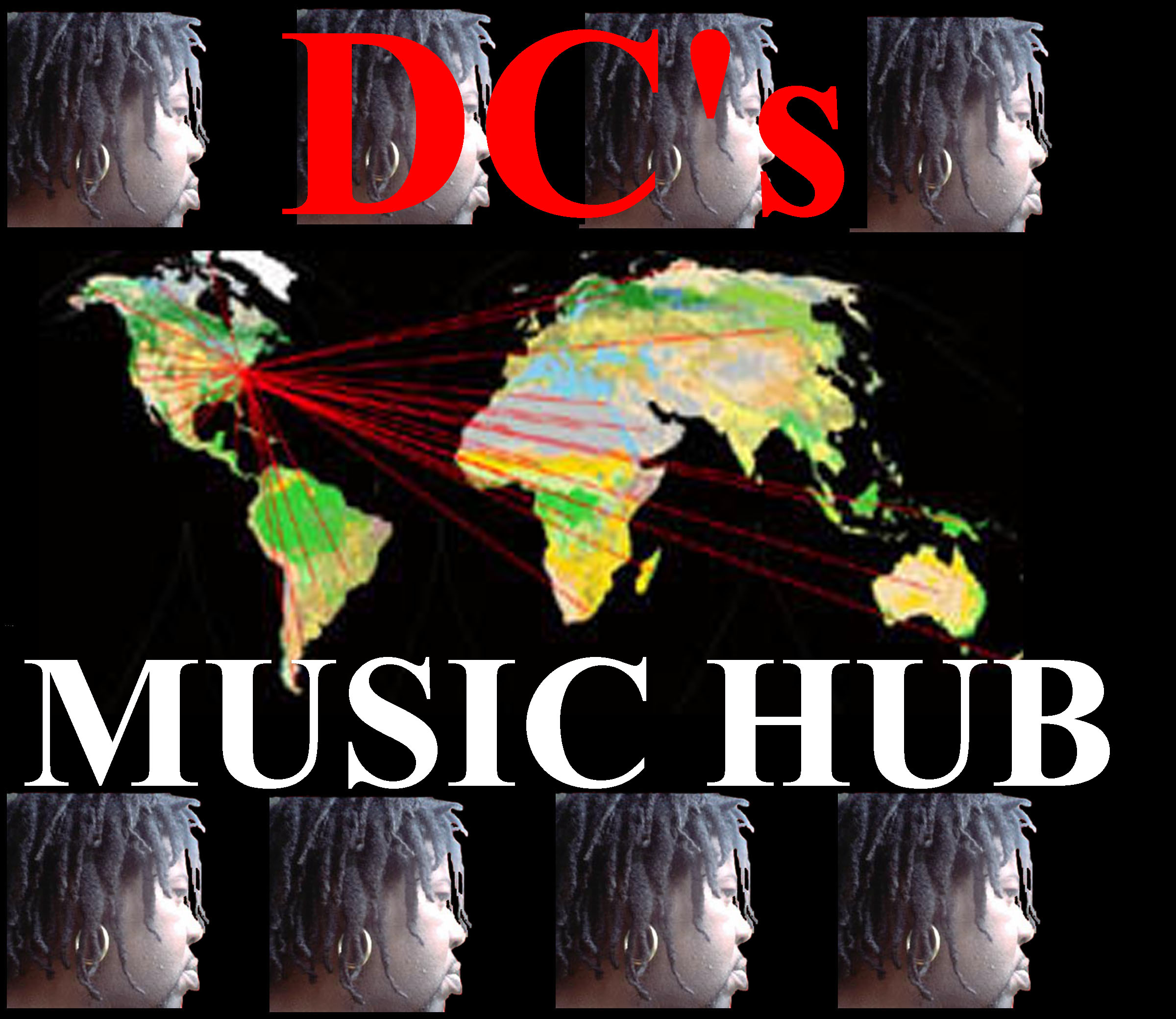aa
|
Marcus Garvey
African Fundamentalism
"African Fundamentalism" was Garvey's quasi-religious manifesto
of black racial pride and unity. It attained canonical status within a short
time after it was first published as a front-page editorial in the Negro World
of 6 June 1925. Written, like The Tragedy of White Injustice, while Garvey was
confined in the Atlanta penitentiary, the essay proclaims ideological
independence from white theories of history, makes concomitant claims of racial
superiority, and articulates major themes that recur throughout Garvey's other
writings and speeches. Chief among these are the ideas of racial
self-confidence, self-development, and success; international black allegiance
and solidarity; and the importance of acquiring a knowledge of ancient black
history.
Garvey's use of the term fundamentalism in the title reflects
this stress on the need for regaining a proud sense of selfhood by setting aside
modern racist labels of inferiority and reviving the basic, fundamental beliefs
in black aptitude and greatness that he saw exemplified in ancient African
civilization. At the same time, the term resonated with Garvey's long-standing
preoccupation with development of an original "Negro idealism." This notion was
essentially grounded in religion. "I don't think that anyone who gets up to
attack religion will get the sympathy of this house," Garvey declared in a
speech in 1929, "for the Universal Negro Improvement Association is
fundamentally a religious institution.
"African Fundamentalism" was written at the peak of the
fundamentalist revival that swept America following World War I. The revival was
expressed both as a theological doctrine and as a conservative neopolitical
movement. While the concerns of Christian fundamentalists focused on a
sociocultural return to a set of principles untainted by modern rationalism and
secularism, and while Populist fundamentalists called for the maintenance of an
older agrarian order that would belie the impact of industrialization and
urbanization---so Garvey's call heralded a recognition of the achievements of
Africans in the past and a return to the principles of black dignity and
self-rule, principles that had been denigrated under the impact of modern racial
oppression, slavery, and imperial colonization.
As in his sardonic use of the phrase "Vanity Fair," Garvey's
choice of the word fundamentalism reflects an intuitive understanding of the
types of associations people would apply to his use of the term. He employs
these associations in the context of the essay itself, wherein his references to
monkeys, caves, and the process of evolution inevitably call to mind the
opposing ideas of social Darwinism and the fundamentalist movement. The conflict
between these two philosophies peaked symbolically in the Scopes trial, which
got under way during the same summer "African Fundamentalism" was written. The
trial, which was held in Dayton, Tennessee, in July 1925, pitted prominent
attorneys William Jennings Bryan and Clarence Darrow against one another in a
much-publicized courtroom battle. At issue was the acceptance of the theory of
evolution and its place in the American school curriculum. Bryan argued for the
creationist viewpoint (a fundamentalist perspective associated with the agrarian
and southern sections of the United States and with the lower classes), while
Darrow represented the modern, humanist viewpoint (a secular perspective
associated with the urban and industrial areas of the North, with the growth of
the social sciences, and with the educated middle classes). Bryan's side in the
conflict prevailed, and teacher John T. Scopes was found guilty of breaking a
law passed by the Tennessee legislature in March 1925, prohibiting the teaching
of any doctrine denying the divine creation of mankind as taught from a literal
interpretation of the Bible.
In his essay, Garvey played on the social Darwinist issues that
were publicly highlighted by the Scopes trial and gave them an ironic twist. He
adopted elements of the evolutionary theory of the secularists and of the strong
nativist strain of the fundamentalists and utilized them both as premises to
support his own counterargument. He presented black people in northern Africa as
representatives of a higher form of life and culture than their white
counterparts in Europe. He thus reversed the popular contemporary claims of
white eugenicists, who applied evolutionary theory to the social milieu,
associating people of African heritage with the slow development of the apes and
offering their results as "proof' of white racial superiority. Similar reversals
of white-dictated beliefs and standards were reflected in Garvey's fervent
praise for the compelling beauty of black skin and African features; in his
championing of the worship of black images of the Virgin Mary, God, and Jesus
Christ in the place of white conceptions of the deity; and in his call for a
recognition of the heroic accomplishments of black people, such as Crispus
Attacks and Sojourner Truth, whose martyrdom, selflessness, and rebelliousness
qualified them for respect equal to that accorded white saints like Joan of Arc.

|
|
a |
